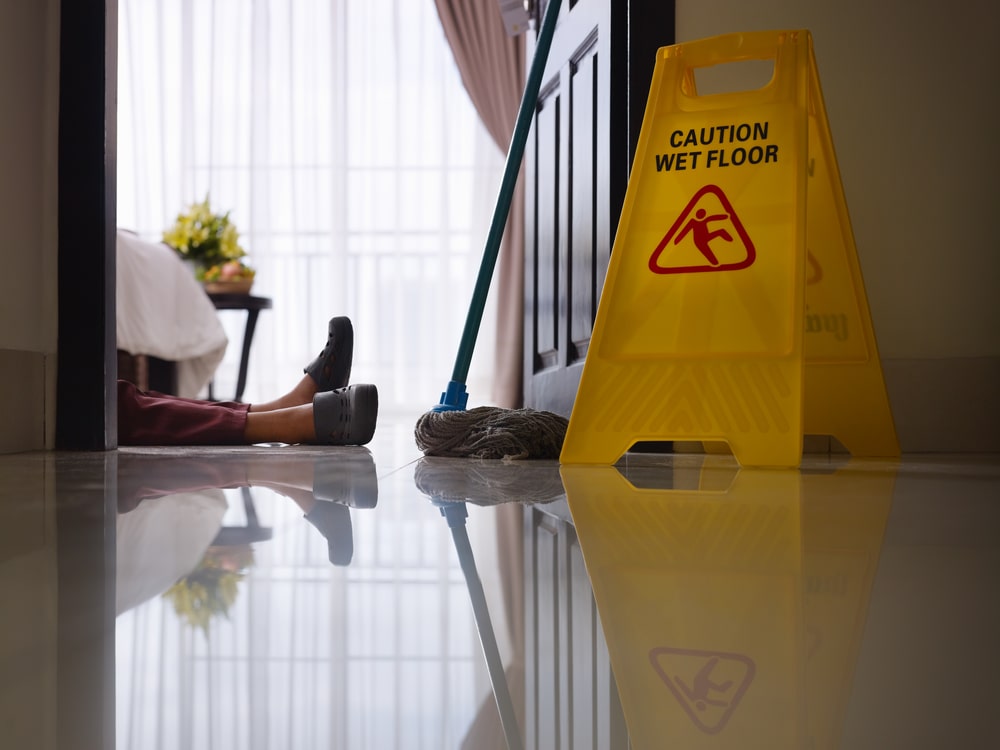When a person slips and falls, one of the first questions asked is what caused it. Was the floor wet? Was there debris? But another factor that’s often overlooked is what the person was wearing on their feet at the time. Footwear choices like high heels, flip-flops, or worn-out soles can influence both how the fall happened and how liability is assigned. As an Akron, OH slip and fall injury lawyer, we’ve seen how footwear becomes a key part of an injury case, especially when the property owner tries to shift the blame.
Types Of Shoes
High heels are a common focus in slip and fall claims. While wearing heels isn’t negligent on its own, it can raise questions when paired with hazardous surfaces. For example, walking across a slick tile floor or uneven pavement in tall heels may increase the risk of imbalance. Property owners may argue that the shoes contributed to the fall, but that doesn’t automatically excuse unsafe conditions. The law looks at whether the owner took reasonable steps to make the space safe for all visitors, regardless of footwear. Of course, there is also the chance that the property manager has not made conditions safe for everyone, and a high heel gets caught on something they should be maintaining. Footwear is not always the issue, but it is a concern.
Flip-flops and loose sandals are another concern. These types of shoes offer minimal support and can easily catch on edges, leading to tripping or sudden slips. Still, that doesn’t change a business owner’s responsibility to keep walkways free from hazards like torn mats or unexpected elevation changes. Even if someone’s shoes made them more vulnerable to falling, it doesn’t mean the unsafe condition didn’t play a role.
In some cases, the issue isn’t the type of shoe but the condition it’s in. Worn-out soles with no traction can increase the likelihood of slipping, especially on polished surfaces. But again, that doesn’t give property owners a pass. If a floor is freshly mopped and left unmarked, or if stairs are slick from snow or ice, it’s the owner’s responsibility to make the danger clear. It can also be difficult to prove this on the property manager side of things.
We’ve worked with clients who were blamed for their own falls simply because of the shoes they wore. It’s important to remember that people have the right to wear what they choose without having to inspect every inch of the ground in front of them. If a floor is too dangerous for someone in heels or sandals to walk across safely, the issue may lie more with the property than the person.
Working as personal injury lawyers helping injured victims in Cleveland and northeast Ohio since 2003, we understand how defense teams try to use footwear as a way to reduce or deny compensation. Our job is to focus on the facts: Was there a hazard? Did the owner fail to address it? Were warnings in place? We put all of that together and do the research to back up the claim and strengthen it. If an insurance company contacts you before you reach out to a lawyer, do not speak to them. Tell them to speak to your lawyer.
Rated by Super Lawyers, our team at Joseph Law Group, LLC takes these questions seriously and knows how to build a case based on real conditions—not just assumptions about what someone should or shouldn’t have worn. If you were injured in a slip and fall accident and someone is trying to blame your shoes instead of addressing the hazard, we can help. Contact us to discuss your case and learn what options are available to recover compensation for your injuries.

















